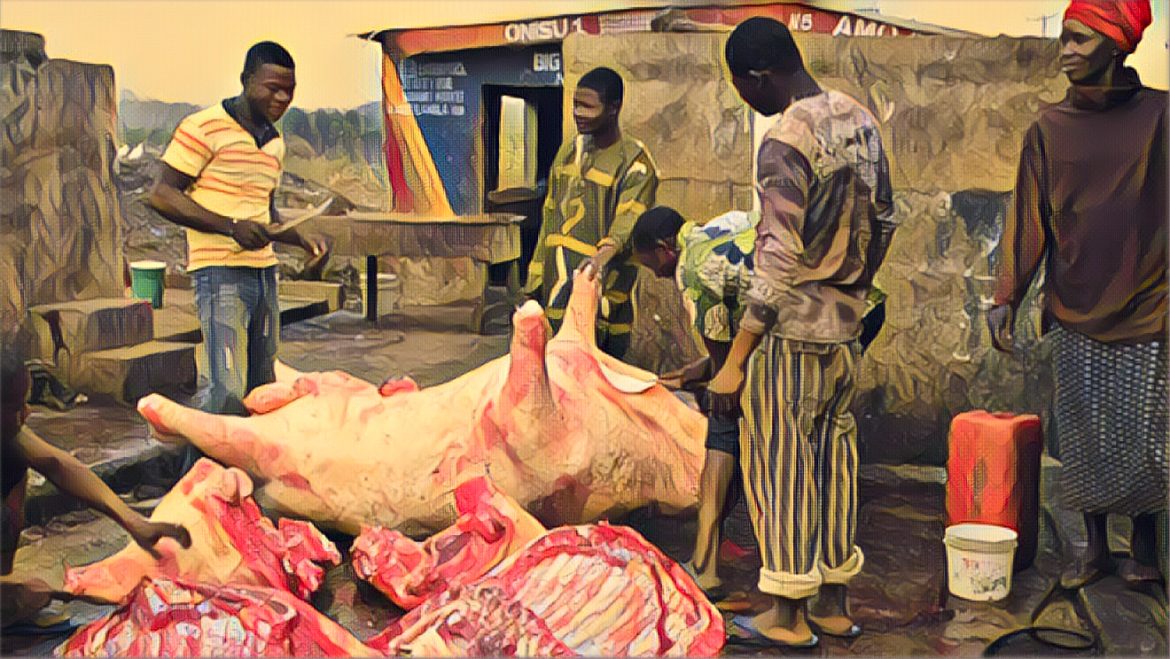The price of meat in Oyo state, Nigeria, has skyrocketed as butchers have embarked on a strike to protest the government’s policy of relocating them to a central abattoir. The strike, which started on Monday, has left many consumers and vendors frustrated and angry.
The butchers are opposed to the government’s decision to move them from their various slaughterhouses to the Akinyele Central Abattoir, which they claim is too far, too expensive, and too unsafe. They also allege that the abattoir is owned by a private company that charges exorbitant fees and imposes harsh conditions on them.
The government, however, insists that the relocation is necessary to ensure hygiene, security, and revenue generation. The government also says that the abattoir is a public-private partnership that benefits the butchers and the state.
The strike has affected the supply and demand of meat in the state, as many consumers have resorted to alternative sources of protein, such as fish, eggs, and beans. Some vendors have also increased the prices of their products to cope with the scarcity.
According to a report by the Tribune Online, a kilogram of meat, which used to sell for N1,200 ($3.14) before the strike, now sells for N1,800 ($4.71). Some vendors have even stopped selling meat altogether, citing lack of supply and high cost.
The strike has also impacted the livelihoods of many people who depend on the meat industry, such as transporters, loaders, sellers, and processors. Some of them have appealed to the government and the butchers to resolve their differences and end the strike.
The Oyo state government has said that it is open to dialogue with the butchers and that it is willing to address their grievances. The government has also urged the butchers to comply with the relocation order and operate within the law.
The butchers, on the other hand, have vowed to continue their strike until the government reverses its policy and allows them to operate from their preferred locations. They have also demanded that the government should provide them with adequate facilities, security, and incentives at the central abattoir.
The strike has exposed the challenges and opportunities of the meat industry in Oyo state, which has a population of over six million people and a high demand for meat. The strike has also highlighted the need for a sustainable and mutually beneficial solution that will ensure the welfare of the butchers, the consumers, and the government.
Source: Tribune Online


